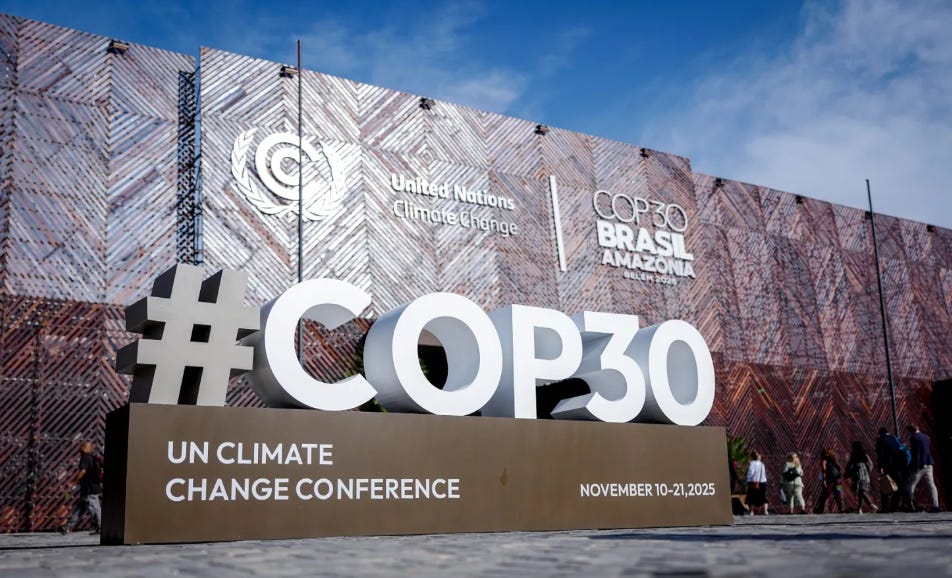News
COP30 Flashpoint: Brazil Confronts Germany as Climate Diplomacy Heats Up in Belém

A moment of heat in the Amazon
When the world’s climate ministers gathered in Belém for COP30, the spotlight was firmly on the Amazon region and the idea that Global South nations could take the lead. But amid this important conversation, a different flare-up stole some headlines: comments by Germany’s Chancellor Friedrich Merz comparing Brazil to Germany triggered immediate backlash in Brazil and raised questions about tone in climate diplomacy.
Why the remark resonated
Merz, speaking after his visit to the summit, quipped at a trade conference that none of the journalists travelling in his delegation asked to stay in Brazil and that they were all eager to return to Germany. In Germany, that might have come across as a throwaway anecdote about travel fatigue. In Brazil, it hit a nerve. The host country of COP30 is casting its role as more than celebratory: it is positioning itself as a centre of climate justice, forest defence and the Global South voice. The government, media, and local leaders in Belém interpreted Merz’s comment as dismissive and symptomatic of a deeper habit of wealthy nations undervaluing emerging economy leadership.
Brazil’s moment in the sun
For Brazil, this is more than a venue. It is an opportunity to reset the narrative. President Luiz Inácio Lula da Silva dubbed COP30 the COP of truth, signalling that the old script of big emitters giving instructions to smaller economies must change. With the Amazon under global scrutiny, Brazil wants climate finance, fair transitions away from fossil fuels, and recognition as a climate authority rather than a passive partner. Hosting the summit in Belém, on the edge of the rainforest, was a deliberate signal of that intent.
Germany’s presence at the summit
Germany is an established voice in climate diplomacy and engages actively in global climate negotiations. After the backlash, a German government spokesperson emphasised the constructive meeting between Merz and President Lula and expressed regret that the chancellor had not seen the Amazon’s natural beauty in person. While the clarification aimed to calm tensions, the exchange showed how easily diplomatic sensitivity can shape the atmosphere at a summit of this scale.
Behind the summit: What is really on the agenda
This tussle over tone obscures the substantive work happening at COP30. Major priorities include tightening national climate targets, securing adaptation funding for vulnerable countries, rolling out a global roadmap to phase out fossil fuels, and protecting vital ecosystems like the Amazon. Brazil’s signature proposal is the Tropical Forest Forever Facility, a funding mechanism aimed at conserving forests and rewarding sustainable stewardship. For Brazil and other developing nations, the question is whether commitments will meet the magnitude of the crisis.
A fresh interpretation: Why this matters for us
From South Africa to Joburg’s suburbs, this story is not just diplomatic intrigue. South Africa and other African nations face parallel challenges: ambition gaps, adaptation needs, fossil fuel legacies, and questions of voice in global forums. When Brazil pushes for financial fairness and a stronger role for the Global South, those issues often mirror ours. The exchange between Germany and Brazil shows that climate diplomacy is as much about respect and recognition as it is about targets and funding.
Public pulse
Reactions in Brazil captured a mix of pride and frustration. Belém’s mayor described the comment as arrogant and prejudiced, while local media criticised it strongly. In Germany, the focus was placed more on explaining the context rather than defending the remark. The incident underlined how cultural missteps can amplify already tense politics, particularly in a global setting where developing nations are demanding respect and equality.
What to watch next
As COP30 heads into its final days, the key questions will be whether developed countries step up climate finance commitments, whether the fossil fuel phase-out language becomes meaningful, whether the Amazon protection facility receives adequate backing, and whether the Global South feels fully represented in the final agreements. The German-Brazilian exchange offers a reminder that diplomacy rests not only on policy but also on tone, perception, and mutual respect.
Also read: All Systems Go: Minister Gives Green Light for G20 Airport Operations
Follow Joburg ETC on Facebook, Twitter, TikT
For more News in Johannesburg, visit joburgetc.com
Source: IOL
Featured Image: Global South Perspectives ~ by Fadhel Kabou















